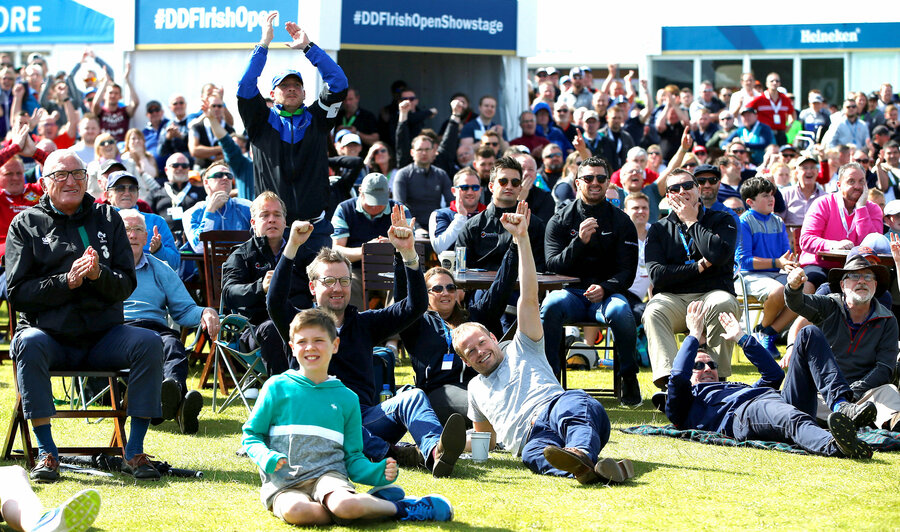Pitching peace in Northern Ireland
Loading...
Over the past quarter century, when many of the world’s troublespots have moved toward peace, their leaders often looked to Northern Ireland as a model. A 1998 accord there ended decades of violence between the Catholic and Protestant communities. Yet a formal peace has not led to an informal melting of hearts. Housing is still largely segregated along sectarian lines. Politics remains deeply divided. The communities coexist more than commingle.
Yet in one model of palpable peace – sports – Northern Ireland shines. More children across the religious boundaries are playing the type of sports long associated with the other side – Protestants playing Gaelic football and Catholics playing rugby. Wearing the wrong jersey in the wrong place no longer gets you in trouble. A survey in 2015 found 86% of people said sports was a good way to break down social barriers. And if there’s one sport that really evokes universal joy, it is football (or soccer).
Last month, the region’s efforts at sports-oriented peace building took a big leap when the five main political parties backed a bid by the United Kingdom and Ireland to host the Euro 2028 football championship. The widespread political support “sends a message of reconciliation, generosity and that sport can unite us,” Paul McErlean, a former star in Gaelic football, told The Financial Times.
To help host the games, Northern Ireland must fix up Casement Park, an old stadium not used since 2013 in a largely Catholic part of the capital, Belfast. If the money can be found for a costly rehab of the 34,500-seat venue and Euro matches are held there, Casement Park would become “the emblem of a new Northern Ireland,” said Joe Brolly, a sports commentator. For their part, the leading politicians said the region would enjoy “an inclusive and unforgettable celebration of football.”
The blending power of sports is important for Northern Ireland because it has not gone through a formal reconciliation process to heal the scars of past violence. The region also faces the ultimate question of whether it might one day reunite with Ireland after being split off by Britain in 1921. For now, it is young sports fans, whose identity transcends old conflicts, that are driving a new direction for Northern Ireland. They prefer watching the pitch, not pitching bombs.





